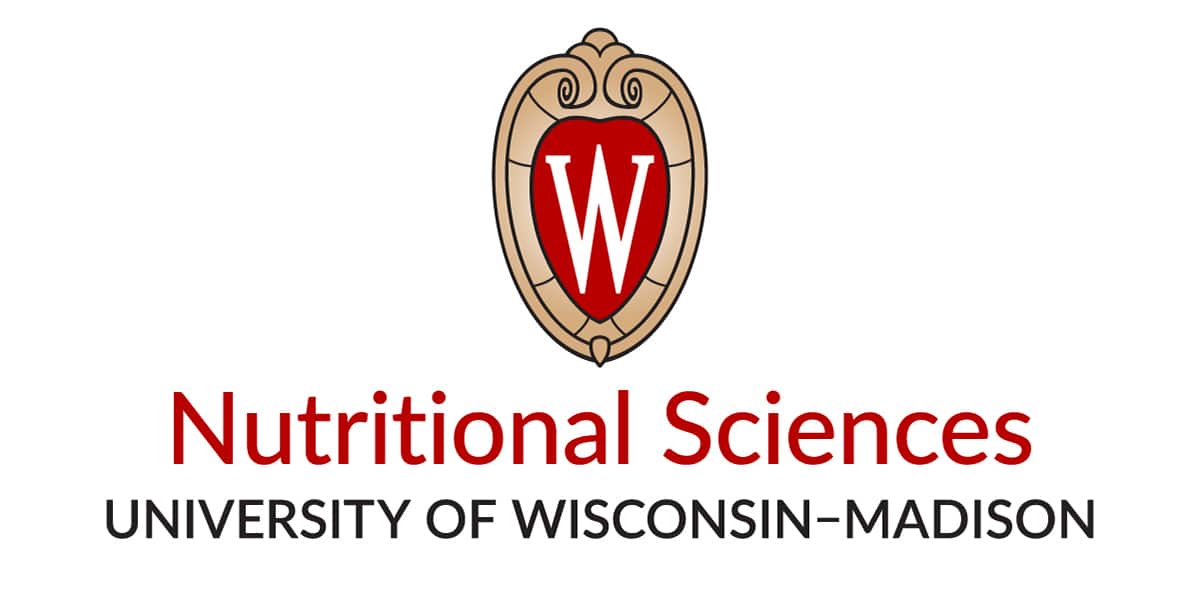
Dietitians are needed as the population ages, and as people continue to become more health conscious than in previous generations. Earning a masters in dietetics degree requires successful completion of a degree program that prepares professionals in the field of nutrition and dietetics.
What Can I Do with a Masters in Dietetics Degree?
An increase in the desire for knowledge about food, proper nutrition, leading a healthier lifestyle, and specific dietary requirements are some reasons that the field of dietetics has expanded over the past several years. The career is multi-faceted and far more than may people likely realize when thinking about the career, or the degree that leads to a career in dietetics. It is important to note that beginning on January 1, 2024, the Commission on Dietetic Registration will require a minimum of a master’s degree for an individual to take the credentialing exam to a registered dietitionist nutritionist.
Top 5 Masters in Dietetics Programs
| Rank | School | Location |
|---|---|---|
| 1 | Northern Illinois University | DeKalb, Illinois |
| 2 | Oklahoma State University | Stillwater, Oklahoma |
| 3 | North Dakota State University | Fargo, North Dakota |
| 4 | Ball State University | Muncie, Indiana |
| 5 | University of Mississippi | Oxford, Mississippi |
The University of Wisconsin College of Agricultural & Life Sciences describes dietetics as the practice of integrating the combination of biochemical, physiological, social, and managerial concepts into the science of nutrition in order to achieve the goal of a healthier lifestyle. Graduates of a master’s degree program in dietetics have the expertise to promote the healthier lifestyle and manage disease through the use of food and nutrition.
Some duties of dietitians typically include:
- Performing assessments of patient or client nutritional needs
- Developing meal and nutrition plans
- Counseling patients or clients about healthy eating habits and nutrition
- Becoming aware of or contributing to the most recent research on nutrition
Earning a master’s degree in dietetics prepares graduates for a career working in hospitals, outpatient clinics, government facilities or agencies, nursing homes or other residential facilities, or for work as a self-employed dietitian. Some dietetics specialists may work in research.
There is a great job outlook for dietitians, with the Bureau of Labor Statistics listing a ‘much faster than average’ anticipated job growth rate through at least the year 2029. The median salary for dietitians was $61,270 in 2019.
These best programs in dietetics prepare students for a rewarding career starting immediately after graduation or prepares graduates to pursue a doctoral degree.
Best 15 Masters in Dietetics Programs
Northern Illinois University
Northern Illinois University offers a Master of Science in Nutrition and Dietetics degree program that prepares students, and current professionals, interested in community nutrition to work as registered dieticians in a variety of public and private health organizations in county, state, and government agencies or as patient-care dietitians in hospitals and other health care settings. Students can choose either a thesis or non-thesis route plan of study. Students can also apply for the dietetic internship while completing their MS degree.
Examples of topics covered in the curriculum includes maternal and infant nutrition, obesity and eating disorders, sports nutrition, behavioral change, aspects of public health, intensive nutrition support and geriatric nutrition.
School Overview
Oklahoma State University
The Oklahoma State University Master of Science in Dietetics program is open to registered Dietitians, or to those that are RD-eligible, or that currently hold a Didactic Program in Dietetics verification statement. The program provides students with up-to-date knowledge of the dietetics field, provides an advanced level understanding of research, and increases the ability for independent thought. Students gain the skills to apply principles from human behavior, management, and the biomedical sciences to design and lead effective food and nutrition programs.
Students complete a capstone project as part of the 36-credit hour program.
School Overview
North Dakota State University
Students enrolled in the online Masters in Dietetics degree program at North Dakota State University prepare for a career in dietetics as they complete courses in areas such as statistics, advanced medical nutrition therapy, clinical aspects of nutrition support, nutritional aspects of oncology, and other comprehensive areas related to dietetics.
The program consists of 36 credit hours of study.
School Overview
Ball State University
The Ball State University Department of Nutrition and Health Sciences offers a Master of Science in Nutrition and Dietetics degree. The program focuses on nutrition science, nutritional assessment, life cycle nutrition, medical nutrition therapy, along with food and nutrition policies. Students have the opportunity to choose between the thesis and non-thesis option.
Students complete core courses, elective courses, and a research component.
School Overview
University of Mississippi
The University of Mississippi offers the Master of Science in Food and Nutrition Services, with eligibility to sit for the Registration Examination for Dietitians. Students enrolled in the Coordinated Program in Dietetics complete 30 credit hours of study and 1,200 hours of supervised practice in areas such as nutrition support, long-term care, food service management, and renal nutrition.
Students choose either the Child and Adolescent concentration, the Food Service Administration concentration, or the Sport Nutrition concentration.
School Overview
University of Massachusetts Lowell
The University of Massachusetts Lowell Master of Public Health – Dietetics option prepares students for a career as a registered dietitian. Students engage in completing coursework and a supervised practice experience. The program consists of 42 credit hours of study, with courses that includes Epidemiology and Biostatistics, and Advanced Clinical Nutrition.
School Overview
University of Alabama at Birmingham
The Dietitian Education Program Track at the University of Alabama at Birmingham is a coordinated program in dietetics option that leads to the Master of Science in Nutrition Sciences. Students have the opportunity to complete coursework online, and have the opportunity to complete the practicum requirement in the Birmingham, Alabama area or “anywhere in the United States.”
The program is designed to lead to a Masters in Nutrition Science and verification statement to become a registered dietitian.
School Overview
Iowa State University
The Master of Family and Consumer Sciences with Dietetics specialization is a new program at Iowa State University that prepares students to practice at an advanced level, or to pursue a doctoral degree in dietetics. Students gain current skills and knowledge in nutrition, food service, business management, and other areas that are important for professionals in dietetics.
The 36-credit hour program includes completion of a creative component.
School Overview
University of Northern Colorado
The Master of Science in Dietetics program at the University of Northern Colorado offers students the opportunity to complete the 35-credit hour program online.
Areas of emphasis in the program coursework includes nutrition assessment, nutrient metabolism, nutrition counseling methods, and public health nutrition, along with other specialized dietetics knowledge. Students also complete a capstone project.
School Overview
Kansas State University
Earn a Master’s in Dietetics degree at Kansas State University and complete the program in a completely online format. The program consists of courses in healthcare administration, nutrition, food science and food service administration, and in other areas related to a career in dietetics. Students have the opportunity to customize the degree to meet their career goals and interests in the 36-credit hour program.
School Overview
Ohio State University
The Ohio State University Master of Dietetics and Nutrition program paves the way for students to earn their degree at a school that indicates that it leads the future of dietetics and nutrition. The innovative two-year program prepares students to assess nutritional status and provide medical nutrition therapy for fitness, health, wellness, and the treatment of diseases.
The program consists of didactic coursework in dietetics, and then a transition into immersive clinical and didactic experiences.
School Overview
University of New England
The Master of Science in Applied Nutrition with a Registered Dietitian Nutritionist focus area at the University of New England provides students with the skills to engage in ongoing research and the skills and evidence-based approaches to discover meaningful solutions that addresses current issues in nutrition.
The program provides successful graduations with the required verification statement to take the Registered Dietitian Nutritionist exam.
School Overview
Virginia Polytechnic Institute and State University
Commonly referred to as Virginia Tech, the Virginia Polytechnic Institute and State University Master of Science in Nutrition and Dietetics program offers students the opportunity to complete the program in as little as 17 months. The competency-based curriculum integrates didactic coursework and supervised experiential learning opportunities across a variety of settings.
Students gain the knowledge and skills to become leaders in their field, to gain expertise in evidence-based practice and the application of critical thinking, and to accelerate improvements in health and overall well-bring through food and nutrition.
School Overview
University of Wisconsin-Madison

Students enrolled in the Online Master of Science in Clinical Nutrition program at the University of Wisconsin-Madison often enroll in the program after completing the ACEND-accredited bachelor’s degree in dietetics program. The school offers the master’s degree program for students that want to advance their career opportunities, and for those that want to meet the requirements for completion of a master’s degree program to take the Registration Exam for Dietitians.
The program consists of 30 credit hours, and includes courses such as Human Energy Metabolism, Nutrition Informatics, and Micronutrients: Human Physiology and Disease.
School Overview
Michigan State University
The Dietetic Internship – Master of Science in Nutrition and Dietetics program at Michigan State University prepares students to become a dietitian that is ready to assume challenging, diverse positions in the field of dietetics and nutrition. The program includes a Community Education concentration option.
Students in the program meet the ACEND competency requirements for didactic internships, and receive their verification statement after completing both the master’s degree program and the supervised practice.
School Overview
Methodology
We researched accredited Master’s in Dietetics programs and then narrowed our list to the best schools that offer the program. We then ranked the schools in ascending order by tuition rate.
Tuition rates do not cover fees, supplies or other costs, such as non-resident fees charged by some schools.
Do you need assistance finding the right college or university? We can help you with that, based on your selected program.
Do you want to have your school included in our rankings? Please contact us and we will be happy to help you.
If you need to update the information for your school, please contact us and let us know.


